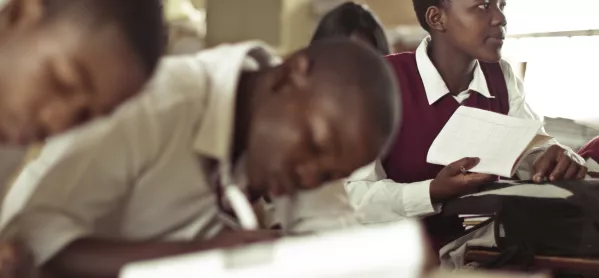A Unesco conference in Paris this month agreed on a new road map to universal quality education, but the plan faces an obstacle that will be familiar to many - no clear prospects for adequate financing.
Delegates were told of a financing gap for basic education that is projected to reach $27 billion (£17.7 billion) by 2020, and there is no plan in place to bridge the gap, which falls especially hard on the most marginalised children and young people.
Teopista Birungi, a Ugandan teacher and education leader, warned that, despite the United Nations’ adoption of the Sustainable Development Goals, a lack of funding jeopardises the education of more than 124 million children and young people denied access to schools and more than 250 million children not learning the necessary skills for employment.
A former executive board member of Education International, Birungi is a member of the International Commission on Financing Global Education Opportunity, which she told the conference would “engage world leaders, policymakers and researchers to develop a renewed and compelling investment case and financing pathway for achieving equal educational opportunity for children and young people.”
Birungi explained that the commission’s aims were to synthesise lessons learned around the creation of an effective and supported teaching force, including: teacher recruitment, professional development and support systems; teacher salaries and value of the profession; teacher accountability; teacher deployment and management; school governance and accountability; and improvements in public sector management.
The Paris conference unanimously adopted a Framework for Action for Education 2030, to guide implementation of the Education 2030 agenda. It aims to mobilise advocates, governments and funders around specific goals for quality education for all.
But even among strong advocates of the agenda, agreement on how to move forward is a long way off. And money is again a critical issue.
Nobel Peace Prize winner Malala Yousafzai, the Pakistani teenage education activist who was shot by the Taliban for her defiance, mounted a campaign earlier this year urging the Global Partnership for Education to revise its position to promote funding for a higher level of education worldwide.
According to the petition, “the GPE’s focus is on funding nine years of free, quality education for girls in these countries. We are asking that the GPE Board votes to expand its focus to a full 12 years of primary and secondary education, and that GPE partners step up and give more money so that girls are given the opportunity to complete secondary schooling.”
In an article on the TES website earlier this month, Malala wrote, “Above all, more funding is needed to fill the enormous financial hole in education in developing countries. Both donors and national governments must play their part, by increasing aid allocations to education and committing increased budget share to domestic education systems.”
But there is concern that extending funding to a full 12 years through GPE could benefit some countries to the detriment of others who have yet to achieve quality education opportunities for all in the primary years.
Pauline Rose, professor of international education at the University of Cambridge and former director of the authoritative and influential EFA Global Monitoring Report, warned in a recent article that efforts to focus on upper secondary education should not be “interpreted to mean that we have now solved the problems in primary school or even before they start school, or that we should dramatically shift resources to higher levels of education”.
Rose, who also chairs GPE’s Independent Evaluation Committee noted that the new global goal on education calls for 12 years of free, quality education for all, but warned, “given how few disadvantaged children reach this level in many countries, abolishing fees for a full 12 years in the near future is likely to be a subsidy for the rich at the upper secondary level…[that] could divert attention away from the invisible, marginalised children who are still excluded from a meaningful primary schooling”.
Is there an alternative? One, said Rose, would be to subsidise “those from disadvantaged backgrounds [so they] reach these higher levels… particularly in countries still struggling to achieve universal primary school completion”.




